President Trump has now issued two executive orders temporarily halting refugees from all countries and immigration from several Middle Eastern counties deemed security risks to the United States of America.
Trump’s actions are constitutional and lawful. These countries affected by the temporary travel ban have little to no infrastructure to properly vet incoming refugees or migrants to America, are known hotbeds of terrorist activity, and, in the case of Syria, are locked in a violent civil war.
Three federal judges–Judge James Robart of Washington State, Judge Derrick Watson of Hawaii and Judge Theodore Chuang of Maryland–have recently issued temporary restraining orders blocking the implementation of Executive Order 13769 and Executive Order 13780.
None of these three judges addressed the statutes and Constitution pertaining to the legitimate authority of the Executive Branch to regulate immigration. In each of these cases, we find that the opinions of the court reflected the political perspectives of Left wing ideologues, Democrat campaign operatives if you will, as they entered campaign rhetoric as evidence prior to Trump gaining the presidency. In all cases, the opinions did not address the underlying statutes, but instead dealt with the “mindset” of the government as developed through Trump’s campaign comments.
On February 6, Washington Federal District Judge James Robart granted a temporary restraining order halting most of President Trump’s original Executive Order 13769, which he signed on January 27.
America First Tennessee, a grassroots organization which I founded here in Tennessee, called for the impeachment of Robart soon thereafter.
On March 15, Hawaii Federal District Judge Derrick Watson granted a temporary restraining order halting President Trump’s revised Executive Order 13780, signed by the President on March 6, across the nation.
Also on March 15, Maryland Federal District Judge Theodore Chuang granted a nationwide temporary restraining halting most of President Trump’s revised Executive Order 13780.
Since the inception of the republic in 1789, fifteen federal judges have been impeached. Only four were acquitted, while three resigned rather than endure a Senate trial. Eight judges were convicted and removed from the bench.
Article II, Section 4 of the Constitution lays out the standard for impeachment of federal officers.
“The President, Vice President, and all civil Officers of the United States shall be removed from Office on Impeachment for, and conviction of, Treason, Bribery, or other High Crimes and Misdemeanors,” it reads.
“You definitely can do impeachment proceedings,” Attorney Robert Barnes, a native Tennessean and nationally recognized attorney, told Breitbart News in the immediate aftermath of the decision by Judge Watson in Hawaii.
“I do think that all the political pressure put on the courts and all the public criticism by legal scholars and everybody else publicly about these decisions, and how reckless they are, and how dangerous they are to the well-being and safety of the country, and how anti-democratic they are, and how they mirror and reflect the aspects of Obama’s shadow government undermining the government through its Deep State connections and its undemocratically elected officials has real value,” Barnes added.
Now, a new national organization growing out of America First Tennessee– the America First Federation– is calling for the impeachment of all three of these overreaching federal judges.
Each judge is to be impeached separately under the AFF plan. If impeached, each will face separate trials in the U.S. Senate.
Those convicted in the Senate will be removed from office.
So let’s look at the judges who have made these unconstitutional political decisions, with whom the current administration, many legal scholars, and many Americans disagree.
Judge James Robart, Washington
James Robart, the U.S. district judge in Washington State, offered little explanation for his decision to stop President Trump’s executive order temporarily suspending non-American entry from seven terror-plagued countries. Robart simply declared his belief that Washington State, which in its lawsuit against Trump argued that the order is both illegal and unconstitutional, would likely win the case when it is tried.
“Judge Robart is trespassing on a core executive responsibility,” Rich Lowry wrote at the National Review of Robart’s decision:
“The exclusion of aliens is a fundamental act of sovereignty,” the Supreme Court held in the 1950 Knauff case, “inherent in the executive power to control the foreign affairs of the nation.” The courts are not meant to second-guess the executive’s conduct of foreign affairs, or intrude on its plenary power in this area. “It is not within the province of any court,” the court noted in that decision, “unless expressly authorized by law, to review the determination of the political branch of the Government to exclude a given alien.”
Second, it’s hard to get around the relevant federal immigration law, which says, “Whenever the President finds that the entry of any aliens or of any class of aliens into the United States would be detrimental to the interests of the United States, he may by proclamation, and for such period as he shall deem necessary, suspend the entry of all aliens or any class of aliens as immigrants or nonimmigrants, or impose on the entry of aliens any restrictions he may deem to be appropriate.”
Finally, aliens residing outside the United States have no right to come here. The Supreme Court held in the 1982 Landon case, “an alien seeking initial admission to the United States requests a privilege and has no constitutional rights regarding his application, for the power to admit or exclude aliens is a sovereign prerogative.”
Judge Derrick Watson, Hawaii
Mollie Hemingway, writing at The Federalist, notes five significant problems with Watson’s decisions.
“Judges using campaign rhetoric to infer intent instead of plainly evaluating the law as written is a dangerous development,” she notes in her explanation of the first problem, “Feelings, Nothing More than Feelings.”
“Judges using campaign rhetoric to infer intent instead of plainly evaluating the law as written is a dangerous development,” she adds.
“Watson’s temporary restraining order focuses exclusively on campaign rhetoric from Trump and his advisors. He dismisses the government’s desire to “focus on the Executive Order’s text, rather than its context” by waving it away and discussing Trump’s press releases and cable news talking points. But those statements are selectively quoted,” she notes as the second problem.
Judge Watson makes an “unforced error,” she notes as the third problem when he ” favorably cites the plaintiffs’ condemnation of Trump for saying the following about his earlier executive order that gave priority to persecuted religious minorities such as Christians and Yazidis.” Here’s what Watson actually wrote in his decision:
In a January 27, 2017 interview with Christian Broadcasting Network, President Trump said that persecuted Christians would be given priority under the first Executive Order. He said (once again, falsely): ‘Do you know if you were a Christian in Syria it was impossible, at least very tough to get into the United States? If you were a Muslim you could come in, but if you were a Christian, it was almost impossible and the reason that was so unfair, everybody was persecuted in all fairness, but they were chopping off the heads of everybody but more so the Christians. And I thought it was very, very unfair. So we are going to help them.’ (emphasis added)
“Once again, falsely? Once again, falsely? It’s mildly disconcerting the judge would know so little about persecuted religious minorities in the region relevant to the travel ban,” Hemingway writes, accurately.
The insertion of the phrase “once again, falsely” by Judge Watson demonstrates for all to see both his incredible personal bias against President Trump and his utter disregard for the facts known to all, and repeatedly pointed out by Nina Shea at the Hudson Institute’s Center for religious freedom that more than 99 percent of refugees who have arrived in the United States are Muslim, while Syrian Christian and Yazidi refugees are left to languish in Syria and surrounding countries by the United Nations High Commissioner on Refugees, which controls, in part, the flow of refugees into the United States under the U.S. Refugee Admissions Program.
As for the fourth significant problem, Confusion about the Establishment Clause, Hemingway notes:
The plaintiffs in the case before Judge Watson said the executive order denies them their right to associate with family members overseas and results in “having to live in a country and in a State where there is the perception that the Government has established a disfavored religion.”
Watson uses the three-part Lemon test for the First Amendment. That means the law must have a primary secular purpose, may not have the principal effect of advancing or inhibiting religion, and may not foster excessive entanglement with religion. Watson says it fails the first part of the test. Yet the idea that the executive order has no secular purpose is laughably wrong. One can disagree with the executive order or its goals without denying that those goals are secular.
The problem is that Watson neglects to note that the Establishment Clause has not been held by courts to apply to immigration policy.
Hemingway notes that “Judicial Overreach” is the fifth significant problem with Watson’s decision:
“This grandstanding judicial supremacism has to stop,” wrote Roger Kimball. Indeed, it’s hard to see how the logic of this temporary restraining order would ever permit a Trump administration to have any immigration policy whatsoever with regard to majority-Muslim countries.
“Regardless of one’s views on the particulars of this executive order and its efficacy, the ability to determine who can enter the country is one of the most obvious and important sovereign decisions a people makes. That power is vested in the executive branch and should not be enjoined by rogue judges. Unelected and unaccountable judges ignoring the law in favor of their feelings is a threat to self-government and rule of law. It needs to stop,” Hemingway concludes.
“Both judges based their decisions on a supposed violation of the Establishment Clause that bars religious discrimination, even though both judges acknowledge that the actual language of the executive order does not discriminate,” Hans Von Spakovsky, a senior legal fellow in The Heritage Foundation’s Edwin Meese III Center for Legal and Judicial Studies, writes at the Daily Signal of the decisions by Watson in Hawaii and Chuang in Maryland:
Watson admits that it “is undisputed that the Executive Order does not facially discriminate for or against any particular religion, or for or against religion versus non-religion.” Nevertheless, Chuang claims (as does Watson) that “the history of public statements continues to provide a convincing case that the purpose of the Second Executive Order remains the realization of the long-envisioned Muslim ban.”
These conclusions make no sense. As the government pointed out in these cases, the revised order explicitly explains its national security purposes and provides detailed information on why these six countries were chosen.
According to Chuang, the government asserted that “there is a heightened chance that individuals from the designated countries will be ‘terrorist operatives or sympathizers’ because each country is ‘a state sponsor of terrorism, has been significantly compromised by terrorist organizations, or contains active conflict zones,’ and those governments are therefore less likely to provide necessary information for the immigrant vetting process.”
All of which is just plain common sense—except to these two liberal judges.
Judge Theodore D. Chuang, Maryland
“Chuang actually does discuss §1182(f), but he then claims that applying that section against immigrants, as opposed to alien visitors, violates another provision of federal immigration law, 8 U.S.C. 1152(a)(1)(A). This provision prohibits discrimination “in the issuance of an immigrant visa because of his race, sex, nationality, place of birth, or place or residence,” von Spakovsy says of Chuang’s decision specifically.
Chuang dismisses the government’s argument that another provision of that same law—which specifically says that nothing in §1152 (a) “shall be construed to limit the authority of the secretary of state to determine the procedures for the processing immigrant of visa applications”—doesn’t apply to Trump’s action. Why? Because Trump is not the secretary of state,” and this provision “expressly applies to the secretary of state.”
“This is a bizarre conclusion. The president does not process visa applications himself. That is the State Department’s job, and the secretary of state is answerable directly to the president,” von Spakovsky notes.
Based on his background and the controversy surrounding his confirmation hearings, it is hard to conclude that Chuang is anything but a far left Democratic operative and ideologue embedded within the federal judiciary by former President Obama.
“Apart from a brief stint at a large Washington law firm, Chuang has spent his entire career working in the government, starting out in the Justice Department’s civil rights unit after graduating from Harvard in 1991 and Harvard Law School in 1994. In 2009, he began working in the general counsel’s office at DHS,” the Baltimore Sun reported:
During Chuang’s confirmation hearing, an influential Republican senator, Iowa’s Chuck Grassley, accused Chuang of having a role in frustrating congressional efforts to investigate the death of a U.S. ambassador in Benghazi, Libya, while he was serving on special assignment at the State Department. But Chuang had strong support from Maryland’s two Democratic Senators at the time, Ben Cardin and Barbara A. Mikulski.
Chuang was confirmed on a 53-42 vote. Another judge confirmed for the bench in Maryland the same day sailed through 95-0.
Pause and take that in for a moment. Sen Chuck Grassley (R-IA) “accused Chuang of having a role in frustrating congressional efforts to investigate the death of a U.S. ambassador in Benghazi, Libya.”
Chuang, Grassley argues, was part of the Obama administration coverup of the murder of American Ambassador Chris Stevens and three other Americans in Benghazi, Libya on September 11, 2012 by Islamic terrorists.
This is the same event that former Secretary of State Clinton, and the entire Obama State Department tried to blame on an obscure video that was seen as disrespectful to Islam.
Despite that caution, the Democratically controlled Senate confirmed Chuang.
So where does that leave us?
It would seem that judicial usurpation of the Executive Power granted the President in the Constitution meets the standard for impeachment of “other High Crimes and Misdemeanors”
These three federal judges (Robart, Watson, and Chuang), in my view, violated the separation of powers clause in that Trump has acted squarely within his constitutional authority.
“Because ‘high crimes and misdemeanors’ was a term of art used in English impeachments, a plausible reading supported by many scholars is that the grounds for impeachment can be not only the defined crimes of treason and bribery, but also other criminal or even noncriminal behavior amounting to a serious dereliction of duty. That interpretation is disputed, but it is agreed by virtually all that the impeachment remedy was to be used in only the most extreme situations, a position confirmed by the relatively few instances in which Congress has used the device,” the authors of The Heritage Guide to the Constitution write on page 293.
That view is enhanced by the Federalist Papers, in an argument most scholars believe was written by John Jay, who later became the first Chief Justice of the Supreme Court.
“The Federalist No.64 claimed that a President could be removed for any misconduct that indicated that he did not possess the requisite honor, integrity and character to be trusted to carry out his functions in a manner free from corruption,” the authors of The Heritage Guide to the Constitution add.
Many who fail to recognize the existential danger the actions taken by these three federal judges pose to the very survival of our republic will suggest that these acts of judicial tyranny be stopped through the proper channels of the courts.
However, the 9th Circuit has been problematic as one of the most overturned courts in U.S. history. The President could appeal to the Supreme Court as well, however, the current 4/4 Court could push this back to the lower courts. And of course, there is the matter of time.
In essence, the American public becomes a spectator. But that is not what we should be about given the obvious politicization of the judiciary and the actions of the Deep State.
As American citizens, with rights, privileges, and courses of action spelled out in the Constitution, we can and should pursue a more aggressive set of actions.
The people must pressure their U.S. Representatives to take action and initiate Articles of Impeachment against these three judges. They must forestall this type of action in the future and chill the activist and out-of-control courts. Impeachment is the one action that the citizens of this country can initiate through their Representatives and push back on the Left, the Deep State and these activist judges.
We must choose: either we uphold and defend our Constitution, or we settle for living under the whim of unelected, unaccountable black robed tyrants.
The America First Federation will be working to convince key members of the House of Representatives to take action and uphold and defend the Constitution.
# # #
Mark Skoda is a business executive and long time Tea Party activist. He is the founder of the Memphis Tea Party and America First Tennessee.

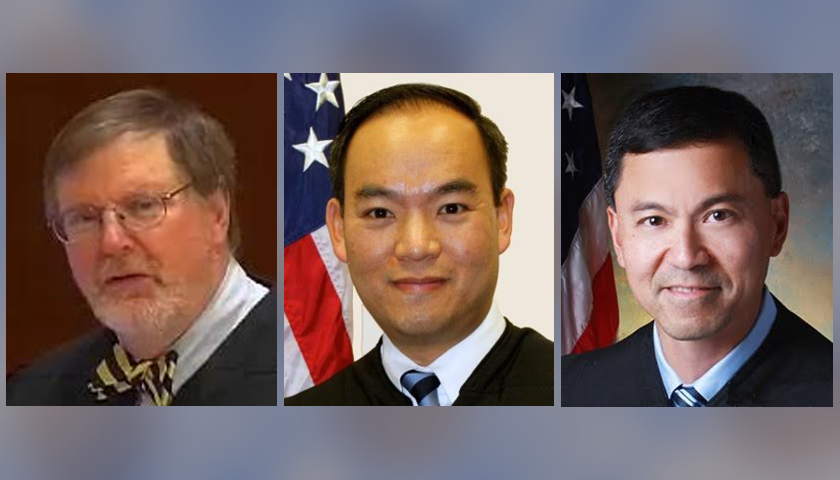



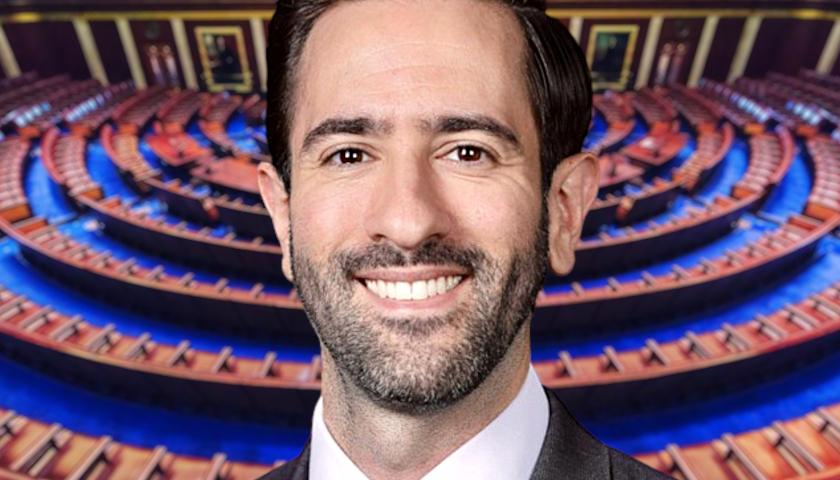
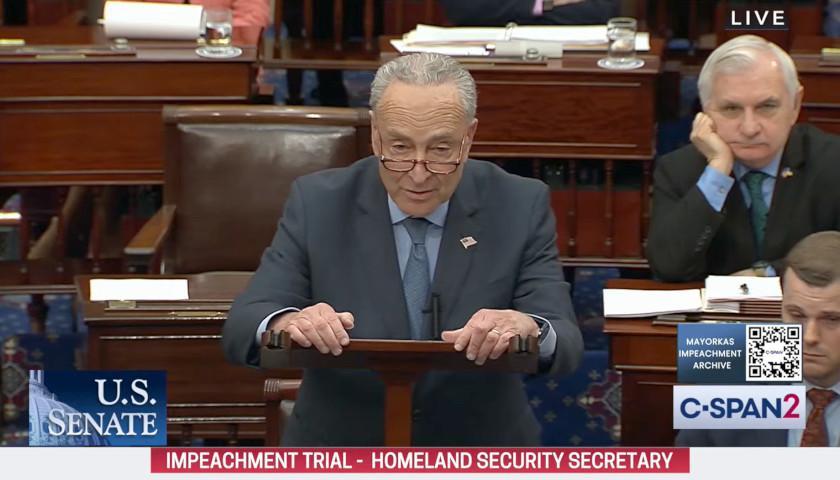
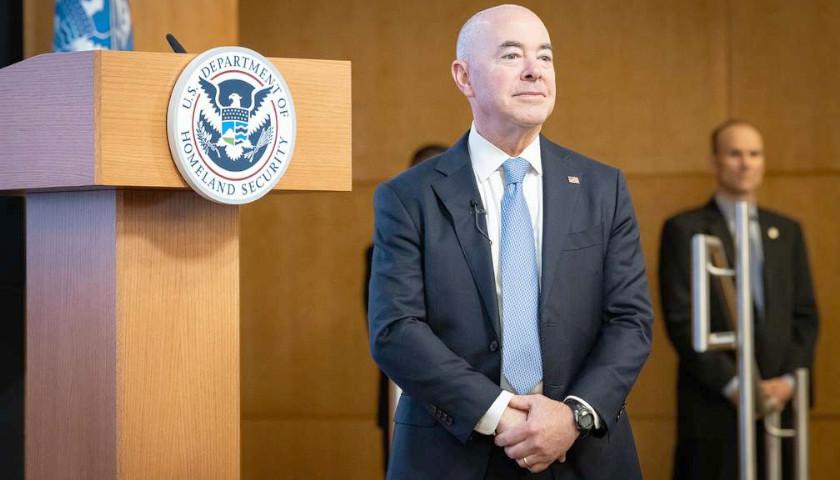
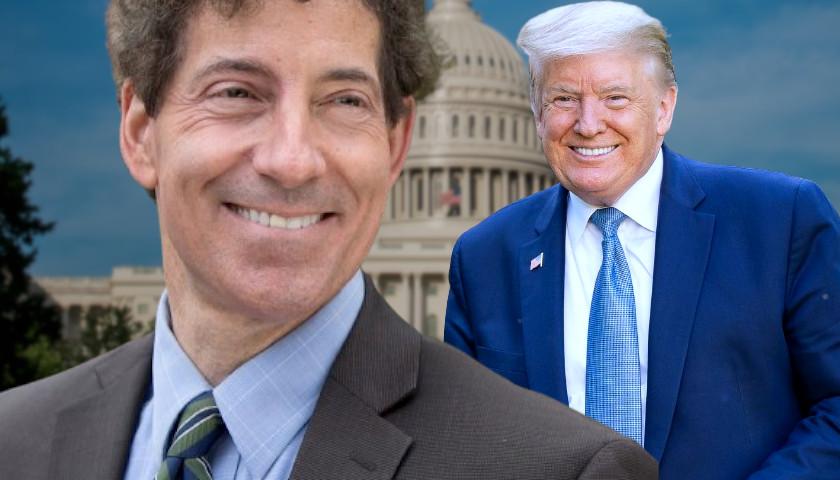
[…] to the legitimate authority of the Executive Branch to regulate immigration,” Skoda wrote in a commentary published on Monday at The […]